We must prioritise Ghana’s local languages – Group
 The group has called for the prioritisation of the country's local languages over foreign ones
The group has called for the prioritisation of the country's local languages over foreign ones
A group of Concerned Ghanaians, Advocacy For Local Dialect, has called for the prioritisation of the country’s local dialect over foreign languages.
The group made the call in a statement issued and signed by its convener, Kwabena Opoku Amponsah on Tuesday, 23 February 2021.
The group noted that: “Language becomes a barrier when people don't understand each other during communication. The ability of an individual to speak a foreign language is commendable but speaking it fluently than your local language is quite embarrassing.
“Every country has a unique local language that is generally accepted as a means of communication. Great countries across the world have developed their local languages to a level which has brought high recognition to their country.”
It bemoaned the effect of Colonisation on the languages of Africa.
“Colonisation has deprived Africans the right to develop their local languages because the colonial masters imposed their language on Africans and managed to make them feel that their local language is inferior.”
It further noted: “The English and French languages are local languages of the colonial masters which were the only means by which they could communicate with the African, therefore, the colonial masters devised ways to teach Africans their local languages to make communication between both sides easy.”
The group stressed: “It is obvious that Africans are still slaves to their colonial masters, the difference is that the chains, which were put on the hands and legs of the African during the colonial days, have become invisible chains.
“The educational system in Ghana is centred on foreign curricula from creche to tertiary levels of education, meanwhile countries like China, Russia, India, Japan, Korea and others have their own systems of education which are structured to suit the vision of the countries' future generation.”
It also stated: “Research by various education think tanks prove that students perform better when they are taught using local languages.”
The group, therefore, entreated the government to “implement policies that will make teaching in local languages a law, at all levels of education i.e from creche to Tertiary and also speaking of local languages at the Parliament of Ghana to help the masses who vote for Members of Parliament of which a large percentage fall within the uneducated section, to understand what the people representing them advocate for or against in Parliament.”
It added that: “Africans must develop a lingua franca which must be a local language from any of the African states through a consensus by the leadership representation at African Union of each Member States.”
Source: classfmonline.com
Trending News
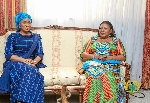
Supreme Court declares as unconstitutional parliament’s approval of salaries, allowances for first lady, veep's wife
14:33
Struggle for next NDC leader'll make Mahama gov't lose focus if he wins 2024 polls - Afenyo-Markin says Bawumia 'better' option
14:16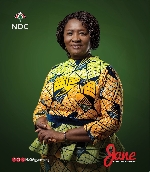
Naana Jane embodies authority and authenticity - Joyce Bawah insists
12:58
Galamsey: Five Burkina Faso nationals caged 20 years each for mining
13:01
Train crash man jailed six months
13:36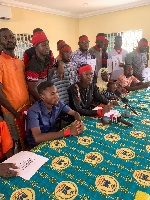
Jobless teachers threaten street demonstrations
11:57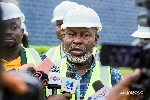
Lagos officials praise Jospong Group’s eco-friendly waste management module, eyes similar module
12:57
Tesla recalls thousands of Cybertrucks over jammed accelerator issue
13:16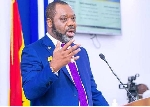
Dumsor: Amoasi's push for Napo exit founded on ignorance – Minister's spokesperson
11:54
'It's no crime' – Abu Sakara defends Alan's NPP exit
12:52



